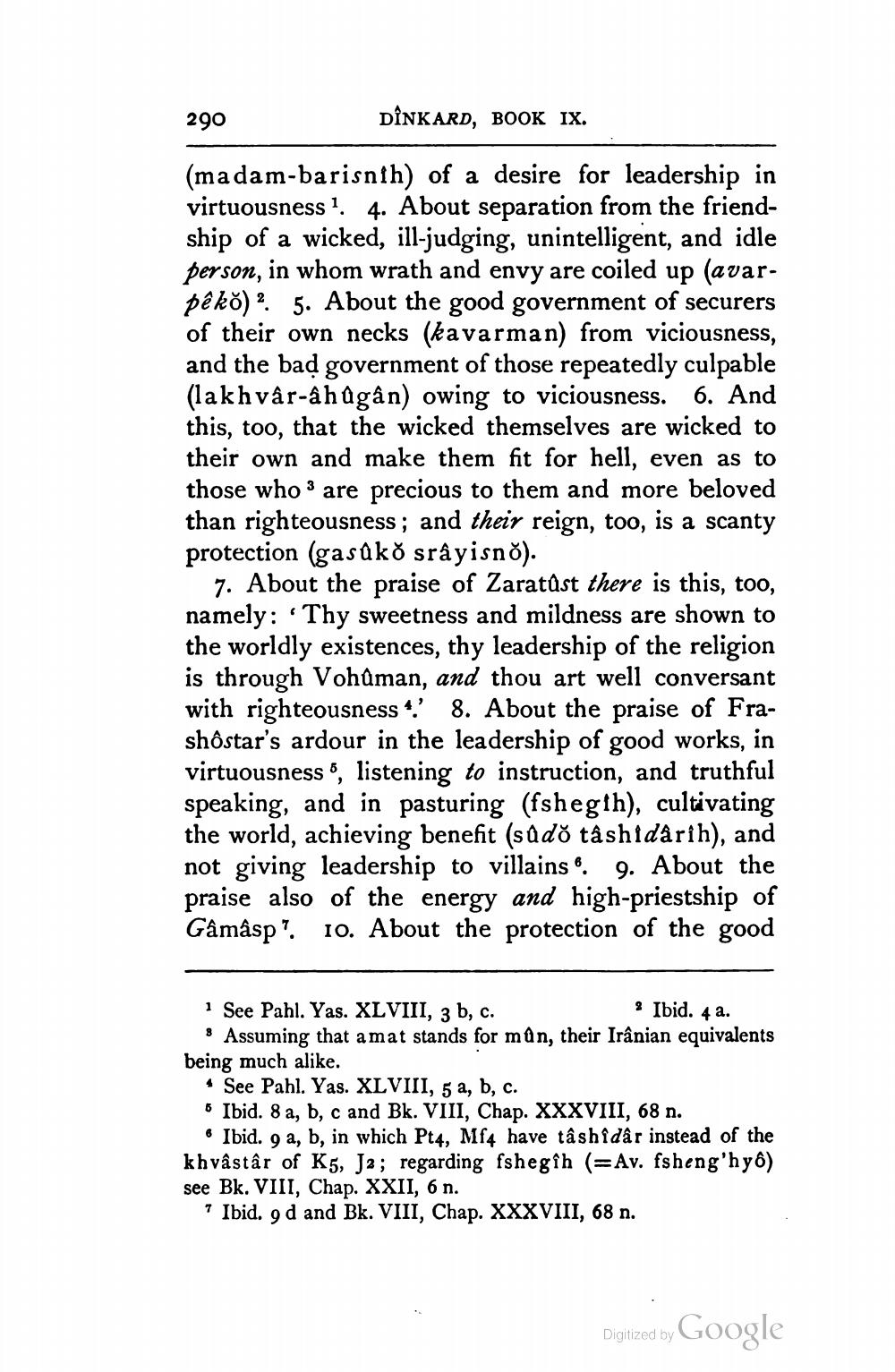________________
290
DÎNKARD, BOOK IX.
(madam-barisnth) of a desire for leadership in virtuousness 1. 4. About separation from the friendship of a wicked, ill-judging, unintelligent, and idle person, in whom wrath and envy are coiled up (avarpêko)? 5. About the good government of securers of their own necks (kavarman) from viciousness, and the bad government of those repeatedly culpable (lakh vâr-â hûgân) owing to viciousness. 6. And this, too, that the wicked themselves are wicked to their own and make them fit for hell, even as to those who 3 are precious to them and more beloved than righteousness; and their reign, too, is a scanty protection (gasûko srầyisno).
7. About the praise of Zaratūst there is this, too, namely: “Thy sweetness and mildness are shown to the worldly existences, thy leadership of the religion is through Vohuman, and thou art well conversant with righteousness' 8. About the praise of Frashồstar's ardour in the leadership of good works, in virtuousness , listening to instruction, and truthful speaking, and in pasturing (fshegih), cultivating the world, achieving benefit (sadó tâshidårih), and not giving leadership to villains. 9. About the praise also of the energy and high-priestship of Gâmâsp? 10. About the protection of the good
1 See Pahl. Yas. XLVIII, 3 b, c.
3 Ibid. 4a. 8 Assuming that a mat stands for mûn, their Irânian equivalents being much alike.
* See Pahl. Yas. XLVIII, 5 a, b, c. 6 Ibid. 8 a, b, c and Bk. VIII, Chap. XXXVIII, 68 n.
6 Ibid. 9 a, b, in which Pt4, Mf4 have tâshidâr instead of the khvâstâr of K5, J2; regarding fshegih (=Av. fsheng'hyo) see Bk. VIII, Chap. XXII, 6 n.
? Ibid. 9 d and Bk. VIII, Chap. XXXVIII, 68 n.
Digitized by Google




